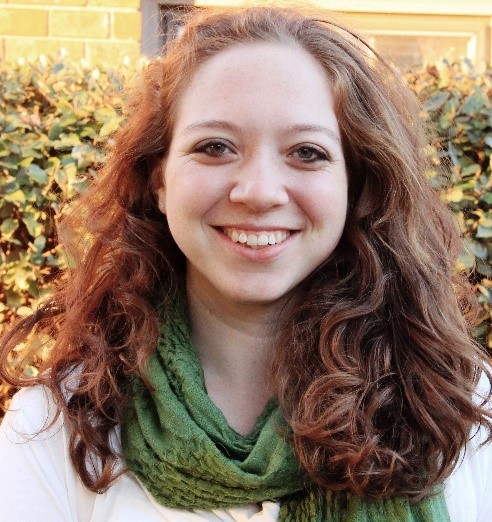"The sort of classes that were offered and the level of instruction both supported thinking more critically and more deeply about things outside of class."
Jeanne Hanna
U of M Graduating Class of 2013
Current Position: Anthropology PhD Student at American University, Washington D.C.
A native Memphian, like many students Jeanne Hanna did not enter the U of M intent
on studying anthropology. After stepping foot into her first cultural anthropology
course, however, she knew it was a "good fit." Anthropology helped Jeanne realize
that the world was full of complications and provided her with "a way of exploring
these complications that [she] already appreciated about the world.
Reflecting on her undergraduate career, Jeanne notes the impression that the high level of instruction in her anthropology courses made on her career trajectory and research interests: "Looking back I can tell that [...] the way the classes are structured meant that I needed to think critically for myself on what was motivating my interests and how I could take those interests I have with an outward focus that's both practical and serves a larger social justice component. That's something I definitely carried from U of M to now. Those lessons that were very carefully and compassionately taught to guide my research."
Although she admits to coming in with "some really weird ideas about what I wanted to do," Jeanne found constructive guidance working with her professors. With the help and guidance of Dr. Lambert-Pennington, Jeanne was able to conduct her own original research in Nashville, TN which she was able to put together into her final honors thesis project. This experience taught her valuable lessons about research design, data collection and analysis, and the writing process. She was even able to parlay a chapter from her thesis into her writing sample, one piece of the larger experience that she believes helped her go directly into a PhD program.
Today Jeanne is working on her PhD at American University in Washington, D.C. Her focus is on political movements and she is currently preparing to begin her fieldwork with a political party in the UK. She says that her interest in political anthropology began with a project in Dr. Brondo's class that analyzed the language used by different political parties in the UK. This early foray was one of many that paved the way for her current studies at the doctoral level.
She offers the following advice for current undergrads interested in graduate school. Explore public and applied programs – there are several out there and they open up a new world of opportunity for research and practice. Next, familiarize yourself with the research interests of faculty at different programs. Get several people to read your statement of purpose and tailor each one to specific departments if possible. Talk to lots of faculty; the more feedback you get the more manageable the experience will be. Don't be scared to apply to any place if it's a good fit. And finally, if you can, hold out for at least some funding, especially if you are pursuing a PhD. Assistantships not only provide for students financially, they also add rewarding elements to your education that are unavailable otherwise.


